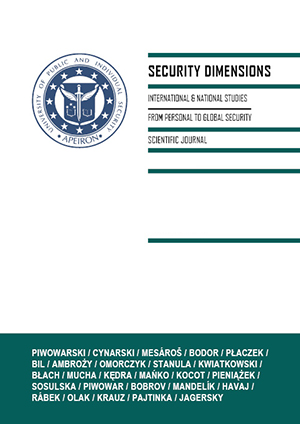The faces of Japanese anti-Semitism. “A bubble anti-Semitism”?
The faces of Japanese anti-Semitism. “A bubble anti-Semitism”?
Author(s): Marek HoborowiczSubject(s): Security and defense
Published by: Wyższa Szkoła Bezpieczeństwa Publicznego i Indywidualnego “Apeiron” w Krakowie
Keywords: Japan;economic crisis;policy;diplomacy;ideology;Jews;anti – Semitism;Uno Masami;
Summary/Abstract: The beginnings of Japanese-Jewish relations date back to the second half of the 19th century. Even though back then the Japanese treated the Jews and other foreigners in Japan equally, over time, a distinctive sense of separateness developed in relations between the Japanese and the Jews. Although those relations were developing in terms of Japanese culture, the elements of European culture were also influential, among the others, prejudices, stereotypes, reluctance, and even hate towards the Jews that developed over the centuries. The Japanese quite quickly learned about numerous views on the Jews that had an impact on their society. It is worth mentioning William Shakespare’s play The Merchant of Venice or famous in Europe The Protocols of the Learned Elders of Zion. The influence of an antiSemitic Nazi propaganda should be treated in a different way; even though it had an impact on the perception of the Jews by the Japanese, it did not lead to the development of hate and its culmination: the acts of terror against the Jews. Starting from the 1930s, anti-Semitic publications were published in Japan and, with they are still published from time to time in the contemporaneous times. Since anti-Jewish polemics of some of the representatives of the Japanese world of science and culture from the 1960s and 1970s were rather unnoticed, what was the content of anti-Semitic Japanese publications from the second half of the 1980s – publications that attracted attention of the Western media?
Journal: Security Dimensions. International and National Studies
- Issue Year: 2017
- Issue No: 22
- Page Range: 165-192
- Page Count: 28
- Language: English

